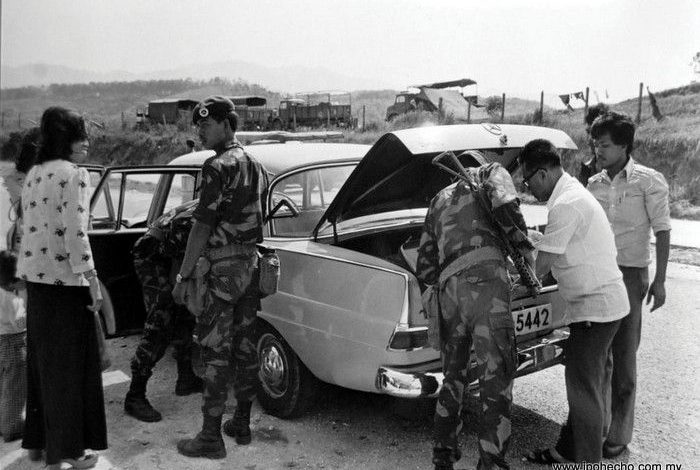Is Centralising Entertainment Outlets Advisable?


By Jerry Francis
Inspector-General of Police (IGP) Tan Sri Khalid Abu Bakar’s suggestion for entertainment outlets to be centralised for security purposes reminds me of the Malayan Emergency period when logging and mining operations were centralised.
Particularly in Perak, which was the last bastion of the fight against communist insurgents from 1948 till a peace accord was signed in 1989, where such a centralised concept was successfully implemented.
It was one of several measures adopted by the security forces to prevent the insurgents from sabotaging logging and mining operations and as well as intimidating the loggers, miners and their workers into providing essential supplies to them.
Under the centralised logging and mining concept, workers in the logging compartments and mines in their respective areas were required to return to a common base camp before 6pm to eat and sleep. A dusk-to-dawn curfew was imposed in the areas.
Those base camps or “kongsis” were fenced up and tightly guarded. The workers set out to their working sites daily with only sufficient cooked food just enough for their own consumption.
Thus, attempts to smuggle large amounts of essential supplies to the insurgents were foiled.
At the beginning, 11 such kongsis were set up. Five in Hulu Perak, two in Sungai Siput, two in Kuala Kangsar, one in Kampar and Slim River, and as well as in the mining area in Simpang Pulai.
They were gradually closed down as the logging compartments in their respective areas were worked out.
An average of 70 logging firms were involved in the scheme at one time with each contributing towards maintenance, including the monthly salaries of the security guards who were on duty round-the-clock. The loggers and miners did not complain since it was only through such arrangements they could operate without interruption.
But can centralising entertainment outlets, as suggested by the IGP, be as successful? I don’t think so even in a small city like Ipoh, under the present threat and situation.
Centralising entertainment centres may result in heavier casualty in the event of a terror attack like the Bali bombing on October 12, 2002, when over 200 people were killed and hundreds others injured.
It occurred in the tourist district of Kuta, where the entertainment outlets are closely located along the main street of the town.
The number of terrorist attacks over the years have shown even tightly guarded areas are not safe. Furthermore, entertainment centres are not the only target.
The terrorists are looking at inflicting maximum impact to put their messages across to the authorities and the people and will therefore look for any suitable target, not necessarily an entertainment outlet.
They may pick a shopping mall, bus station or any other crowded place. Therefore, if the terrorists chose to attack some other business sectors, do we have to centralise them too?
Of course we must be concerned about the safety of the people, but do we have to be jittery and live in constant fear? If we do, we will be succumbing to the terrorists and that is exactly what they want us to do.
What is needed from our police is to further improve their counterterrorism and anti-crime measures so that all Malaysians will know and appreciate that they are doing the best of their abilities to prevent terror attacks.
The IGP’s idea of having one central entertainment hub came following the reportedly first attack by terror group Islamic State (IS) on Malaysian soil at the Movida bar in Puchong, Selangor, on June 28.
A grenade was lobbed at the bar resulting in eight people being injured. It is believed that the terror group had targeted a different pub in the location, but it was closed on that day and so they switched their attack to Movida bar.
Khalid had also cautioned entertainment outlets that operating into the wee hours of the morning when security is lax would make them easier targets.


